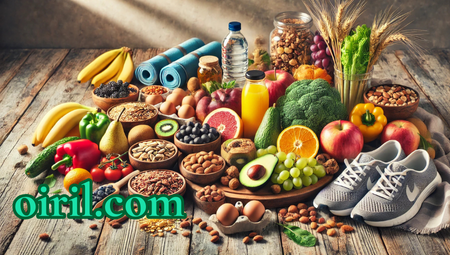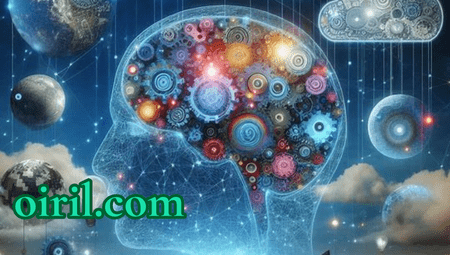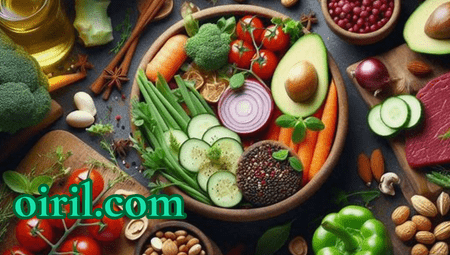A balanced diet is a cornerstone of a healthy, active lifestyle, fueling the body and mind for both daily tasks and fitness goals. For individuals aiming to sustain an active life, understanding and incorporating essential nutrients is vital for optimal energy, muscle recovery, and overall health. This article will explore the key nutrients required for maintaining a balanced diet and a vibrant, active life, covering the importance of each nutrient and suggesting some foods rich in them.
Carbohydrates The Body’s Primary Energy Source
Carbohydrates often receive mixed reviews in the diet world, but for an active lifestyle, they are crucial. As the body’s main source of energy, carbohydrates break down into glucose, which is used immediately for fuel or stored in the liver and muscles as glycogen for later use. For athletes or individuals with high physical activity levels, carbohydrates are essential to prevent fatigue, enhance endurance, and maintain intensity during workouts.
- Types of Carbohydrates: There are two main types: simple and complex. Simple carbs (like sugar) are quickly digested, leading to rapid energy but often followed by a “crash.” Complex carbs, like those found in whole grains, vegetables, and legumes, provide sustained energy due to their slow digestion and high fiber content.
- Good Sources of Carbohydrates: Opt for whole grains like oats, quinoa, and brown rice, as well as fruits, vegetables, and legumes, for a steady supply of energy and nutrients.
Proteins Building Blocks for Muscle Repair and Growth
Protein is essential for muscle repair and growth, particularly after exercise. Proteins are made of amino acids, some of which the body cannot produce on its own (essential amino acids), thus needing to be obtained through diet. For those engaging in strength training or endurance sports, protein helps in repairing micro-tears in muscles, aiding recovery and promoting growth.
- Daily Protein Needs: The Recommended Dietary Allowance (RDA) for protein is 0.8 grams per kilogram of body weight for general health, but this may increase to 1.2-2 grams per kilogram for those with high physical activity.
- Good Sources of Protein: High-quality proteins include lean meats, poultry, fish, eggs, dairy products, legumes, and plant-based sources like tofu, tempeh, and quinoa.
Healthy Fats Essential for Hormone Production and Brain Health
Healthy fats are critical for an active lifestyle, contributing to energy, cell structure, and the production of essential hormones. Fats are also crucial for brain health and help the body absorb fat-soluble vitamins (A, D, E, and K).
- Types of Healthy Fats: Unsaturated fats, including monounsaturated and polyunsaturated fats, are beneficial for heart health and inflammation reduction. Omega-3 fatty acids, a type of polyunsaturated fat found in fish, flaxseed, and walnuts, are especially beneficial for reducing inflammation and supporting brain health.
- Good Sources of Healthy Fats: Avocados, nuts, seeds, olive oil, and fatty fish like salmon are rich in healthy fats that support an active body and mind.
Vitamins Vital for Energy Production and Immunity
Vitamins play a critical role in converting food into energy, protecting cells from damage, and supporting the immune system. For an active lifestyle, B-vitamins are particularly important as they help in energy metabolism. Vitamin C is another essential nutrient that acts as an antioxidant, protecting the body from oxidative stress, especially after intense exercise.
- B-Vitamins: These vitamins, including B1 (thiamine), B2 (riboflavin), B3 (niacin), B6, B12, folate, and biotin, are water-soluble and must be consumed regularly. They help in energy production, brain function, and red blood cell formation, which is critical for oxygen transport during physical activities.
- Vitamin C and Antioxidants: Vitamin C helps in collagen production, essential for skin, joint, and muscle health, and strengthens the immune system.
- Good Sources of Vitamins: Whole grains, meats, leafy greens, and citrus fruits are excellent sources of B-vitamins and Vitamin C, supporting both energy and immunity.
Minerals Supporting Muscle Function and Bone Health
Minerals such as calcium, magnesium, and iron are vital for an active lifestyle, ensuring muscle function, bone health, and oxygen transport.
- Calcium and Magnesium: These minerals are essential for bone strength and muscle contraction. Magnesium also aids in muscle recovery and may help reduce muscle cramps and soreness.
- Iron: Iron plays a crucial role in oxygen transport within the bloodstream. A deficiency in iron can lead to fatigue and decreased performance, making it essential for those with active lifestyles, especially for women.
- Good Sources of Minerals: Dairy products, leafy greens, nuts, seeds, and red meat are rich in calcium, magnesium, and iron, providing structural support to muscles and bones.
Water and Electrolytes Essential for Hydration and Performance
Proper hydration is crucial for anyone engaging in physical activities, as water regulates body temperature, aids digestion, and enables nutrient transportation. Electrolytes, such as sodium, potassium, and chloride, are essential for maintaining fluid balance, muscle contractions, and nerve function, which can become depleted during exercise.
- Hydration Needs: Daily water needs vary based on activity level, climate, and individual physiology. The general recommendation is to drink at least 8 glasses of water per day, but this increases with exercise.
- Electrolytes and Active Living: For those who sweat heavily or engage in prolonged exercise, electrolyte replacement is important. Many sports drinks contain electrolytes, but coconut water, bananas, and leafy greens are natural alternatives.
- Good Sources of Electrolytes: Citrus fruits, bananas, yogurt, and spinach are excellent sources of electrolytes that support hydration and physical performance.
Fiber Key for Digestion and Satiety
Fiber is essential for digestive health, satiety, and blood sugar regulation. For active individuals, fiber ensures a steady release of energy by slowing the digestion and absorption of carbohydrates.
- Types of Fiber: Soluble fiber dissolves in water and can help lower blood cholesterol and regulate blood sugar. Insoluble fiber, on the other hand, adds bulk to the stool, aiding in digestion.
- Good Sources of Fiber: Whole grains, fruits, vegetables, and legumes are excellent sources of fiber that support digestion and long-lasting energy.
Tips for Maintaining a Balanced Diet for an Active Lifestyle
Plan Ahead: Preparing meals with a variety of nutrients helps avoid last-minute, less healthy choices.
Balanced Meals: Aim for each meal to contain a balance of carbohydrates, proteins, and fats to sustain energy and support recovery.
Snacks and Recovery Foods: Have nutrient-dense snacks available to support recovery post-exercise. Options like yogurt, nuts, and fruits are excellent choices.
Stay Consistent: Maintaining a balanced diet requires consistency, and small daily choices can lead to significant long-term benefits.
A balanced diet filled with essential nutrients is vital for an active lifestyle, supporting energy, recovery, and overall health. Carbohydrates, proteins, healthy fats, vitamins, minerals, and hydration form the foundation of this lifestyle, enabling individuals to perform at their best while minimizing risks of injury and fatigue. By making informed food choices and prioritizing nutrient-dense meals, anyone can optimize their health and vitality for a lifetime of activity and well-being.





